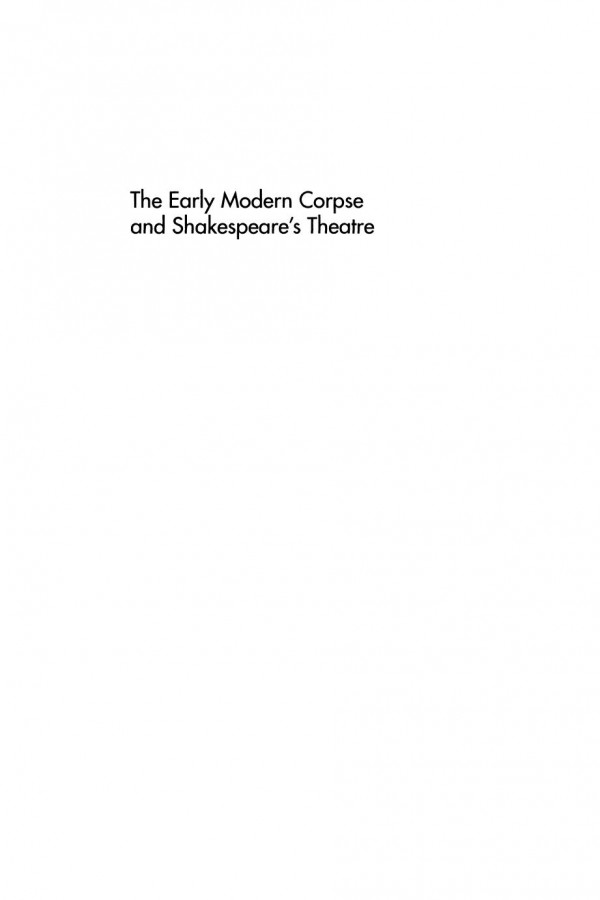

Most ebook files are in PDF format, so you can easily read them using various software such as Foxit Reader or directly on the Google Chrome browser.
Some ebook files are released by publishers in other formats such as .awz, .mobi, .epub, .fb2, etc. You may need to install specific software to read these formats on mobile/PC, such as Calibre.
Please read the tutorial at this link: https://ebookbell.com/faq
We offer FREE conversion to the popular formats you request; however, this may take some time. Therefore, right after payment, please email us, and we will try to provide the service as quickly as possible.
For some exceptional file formats or broken links (if any), please refrain from opening any disputes. Instead, email us first, and we will try to assist within a maximum of 6 hours.
EbookBell Team

5.0
48 reviewsWithin a theoretical framework that makes use of history, psychoanalysis and anthropology, The Early Modern Corpse and Shakespeare's Theatre explores the relationship of the public theatre to the question of what constituted the 'dead' in early modern English culture.
Susan Zimmerman argues that concepts of the corpse as a semi-animate, generative and indeterminate entity were deeply rooted in medieval religious culture. Such concepts ran counter to early modern discourses that sought to harden categorical distinctions between body/spirit, animate/inanimate - in particular, the attacks of Reformists on the materiality of 'dead' idols, and the rationale of the new anatomy for publicly dissecting 'dead' bodies. Zimmerman contends that within this context, theatrical representations of the corpse or corpse/revenant - as seen here in the tragedies of Shakespeare and his contemporaries - uniquely showcased the theatre's own ideological and performative agency.
Key Features